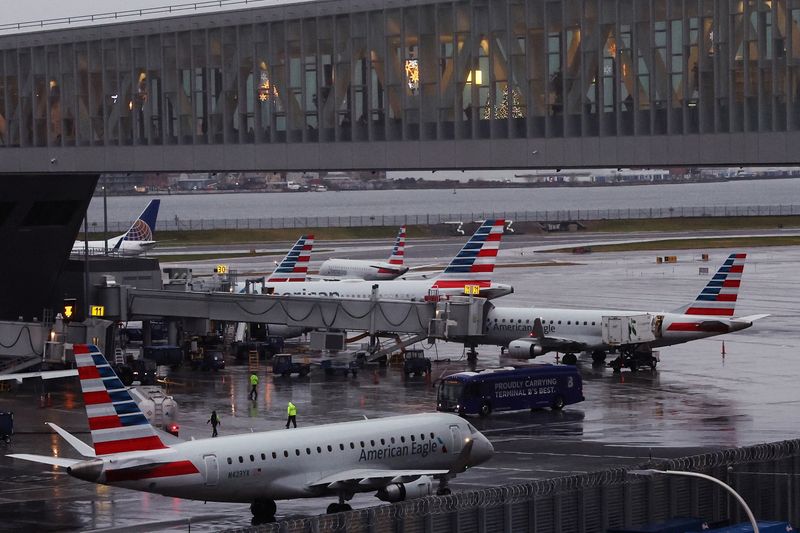
By Joanna Ploczynska
DUBLIN (Reuters) – The number of air travelers is expected to double by 2050, increasing demand for fuel and undermining the airline industry's steps to cut its emissions, a study by climate advocacy group Transport and Environment showed on Monday.
As aviation industry leaders meet in Dublin this week for an annual financial conference where many aircraft are expected to be sold, the Brussels-based group called on the European Union to implement measures to limit the growth of the sector.
“It's time to get back to Earth and put an end to this addiction to growth,” Joe Dardenne, the group's aviation director, told Reuters.
The report said steps to tame fast-growing air travel could include limiting the growth of airport infrastructure and corporate travel while increasing taxes on the sector.
The aviation industry, which accounts for about 2.5% of global carbon emissions, has pledged to use more sustainable aviation fuel (SAF) in a bid to reduce emissions and reach net zero by 2050.
But the tight supply and prices up to five times higher than conventional jet fuel mean that little of the environmentally friendly fuel is in use.
Industry fuel use is expected to rise 59% by 2050 from 2019 levels as passenger numbers increase, Monday's report said.
With aircraft manufacturers Airbus and Boeing (NYSE:) anticipating high growth in the coming years and an increasing number of aircraft in the sky, emissions are expected to increase even as more efficient aircraft come on the market and SAFs are in use.
“The more they grow, the more they move away from it,” Dardenne said. “At this rate, they will still burn 2 billion barrels of oil a year in 2050, despite the use of the SAF.”

Airbus and Boeing did not immediately respond to a Reuters request for comment.
The aviation industry has repeatedly rejected calls to limit growth, saying the sector is essential for economic development and global connectivity.







